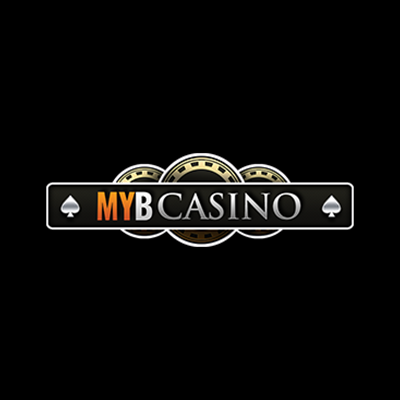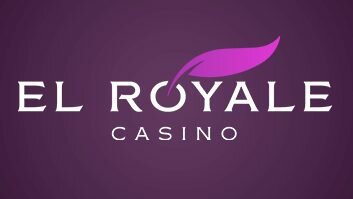Gambling online is partially legal in Australia and fortunately this is not as complicated as it sounds. There are a few specific things you need to know about the rules and regulations but they have been created on the behalf of protecting the citizens.
Top Rated US Casino Sites
| Casino | Bonus | Play | Review | Games | Deposit | Device | Rating | |
|---|---|---|---|---|---|---|---|---|
| 1 |  |
Up to USD5,000 Welcome Bonus | Visit Casino | Read Review | Slots, Table Games, Bingo, Poker 24/7 | Visa, Mastercard, Bitcoin, Neosurf | Mobile, Desktop | 90 |
| 2 |  |
Free (No deposit required) | Visit Casino | Read Review | Slots, Table Games, Mobile Compatible | Visa, Mastercard, Bitcoin, Neosurf | Mobile, Desktop | 100 |
| 3 |  |
280% Welcome Offer | Visit Casino | Read Review | Slots, Table Games, Mobile Compatible | Visa, Mastercard, Bitcoin, Neosurf | Mobile, Desktop | 80 |
| 7 |  |
200% up to 1,000 USD Welcome Bonus | Visit Casino | Read Review | Slots, Table Games, Poker 24/7 | Visa, Mastercard, Bitcoin | Mobile, Desktop | 100 |
| 6 |  |
100% up to 1,000 USD First Deposit Bonus | Visit Casino | Read Review | Slots, Table Games, Mobile Compatible | Visa, Mastercard, Bitcoin, Neosurf | Mobile, Desktop | 80 |
| 5 |  |
200% up to 1,000 USD Welcome Bonus | Visit Casino | Read Review | Live Casino Games, Mobile Compatible | Visa, Mastercard, Bitcoin, Neosurf | Mobile, Desktop | 90 |
| 4 |  |
250% Deposit Match + 50 Free Spins | Visit Casino | Read Review | Live Dealer, Slots, Table Games | Visa, Mastercard, Bitcoin, Neosurf | Mobile, Desktop | 100 |
| 8 |  |
0 Poker Bonus, 3,000 USD Casino Bonus, & 0 Sportsbook Bonus | Visit Casino | Read Review | Poker, Casino, Sportsbook | Visa, Mastercard, Bitcoin, Crypto | Mobile, Desktop | 90 |
The Interactive Gambling Act
Online betting became lawful in Australia in 1996 and had stayed that way until The Interactive Gambling Act (IGA) was passed in 2001. This updated legislation by no means banned net gambling but does restrict certain paths of it. However, there were some concerns about its effectiveness.
What Did it Do?
There were 2 major changes to the world of Australian online gambling after the passing of the IGA. First, it became illegal for online gambling sites to advertise “real money” gambling opportunities to Australian residents, while remaining free to advertise their services to other countries like the UK. It also criminalized certain variations of what the government deemed as “interactive gambling”. 
Due to the IGA, games like poker were no longer available because that involves a direct interaction. It also took away “live betting” which is betting on a sports game in Australia that is already in progress. It is considered interactive because the viewers have already seen part of the game and that is seen as too direct of an involvement. Sports betting remained legal but only for bets placed before the game starts. Betting on casino games, slots, horses, and greyhounds also stayed legal.
Protecting Gambling Addiction
The reasoning for the IGA’s passing is interesting in that it also focused on protecting those who may have a gambling problem. The logic is that if real money gambling can be advertised, that means any time it is it can create a gambling temptation for somebody; meaning somebody who can potentially have a gambling problem.
As everybody knows, gambling is meant to entertain people, not make them rich. The more you do it, the less money you should expect to have in your pocket as that is the cost for being entertained. Still, some people struggle so mightily to grasp this concept and believe they are “due” to either win their money back or keep winning when on the occasional hot streak. This mental addiction is a very real thing and has allowed many people to send their lives into a dark depressing pit. It is refreshing to see the government cares enough about its citizens to protect them from this rather than willing to do anything so they can make more money.
Of course, in the grand scheme of things, if a person has a gambling problem the problem is not the gambling, it is them. The gambling is just the form they use to compensate for what’s bothering them internally. If a person is psychologically off center they are inevitably going to find a way to screw themselves one way or another until they heal their wounds.
From that angle it can pose the question then what’s the point of taking away gambling advertising if it doesn’t change enough in the big picture? That may be true but that still is not the point because the idea is to make it easier for citizens to safeguard themselves. Eliminating real money advertising from the equation is a lot better than nothing. It at least lessens the chance of a gambling degenerate getting drawn in by the temptation. The citizens still obviously know that the gambling opportunity is there regardless if it is advertised, but not having it in their face as often as it probably would be if it was legal at least serves as a band-aid of some sort. It still helps the would-be gambler protect them from themselves.
It’s the same idea if you were a recovering alcoholic. You could be feel totally fine without drinking and feel no urge to go obtain alcohol even though you know it’s always there. It’s when you literally go to a party or a place that is serving alcohol it becomes a different story and gives you the chance to relapse. The government feared the same thing would happen with real money gambling advertising. That the visuals shown in advertising could cause people to get deluded by the thrill of winning and show up with their money like zombies. Whereas if they were never exposed to any advertising they are much less likely to get tempted.
It is certainly a conservative approach but one that is thoughtful. The whole point of gambling is lost once you become too attached to trying to win back the money you lost. Even with all these laws in place gambling still makes up a huge part of Australian culture and it is estimated around 80% of the adult population indulges in some form of gambling.
Repercussions For Violating the IGA
In the event a company breaks this law and advertises real money, they are to be fined $1.1 million a day.
It should also be noted that the terms of the IGA apply to the gambling operators only. The citizens cannot get into trouble and can gamble on any licensed site that accepts Australian business. That means if an Australian citizen has an account on a site operating offshore that allows its customers to place live bets or play poker, the bettor cannot be penalized. Instead, the Australian government will have to go after the operator which would probably only happen if things somehow got really out of hand. But that is unlikely to happen and everybody seems to know it because gambling sites offshore to Australia either don’t know or care about the IGA as live betting and poker are available to every customer.
We see it all the time that laws are passed but prove to be more trouble than they are worth to enforce. The IGA may have clauses in it that other countries are supposed to oblige but in the end, since the IGA is only easily enforced on Australian soil that is all that has gone on.
Stepping Outside Your Own Boundaries
You do not have to worry about gambling on offshore sites from a legal perspective, but do not lose sight of the inherent risk you are taking when you do gamble on sites outside your home soil. If something goes wrong (like when you’re trying to cash out), you have very little recourse and are at the mercy of whatever the offshore site feels like doing. It’s just something to keep in mind when weighing how important it is to be able to play poker and/or place live sports bets vs. the overall safety of your money.
Taxation
No matter how much you might win in a year from gambling, the government considers none of it to be taxable income. They see it as a hobby and any winnings you come away with are yours to keep because of good luck. If you claim to be a professional gambler then the government will take a hefty 30% in taxes. 
This was an issue in 2005 when Australian citizen Joe Hachem won the World Series of Poker No Limit Hold’em Championship along with $7.5 million. The government claimed he owed $2,250,000 but he argued despite the large figure that poker is still a hobby and he doesn’t owe anything. The government eventually agreed and he got to keep it all. It would seem the wise thing to do is never claim to be a professional gambler or poker player.
Top Gambling Sites
Here are some of the more popular online casinos from 2017. Each one has offers their own deposit and other promotional bonuses for its most frequented players and they accept AUD currency. All the sites are aesthetically pleasing and easy to navigate. They all have numerous deposit and withdrawal options which are listed at the bottom of the homepage. To this point cryptocurrency is not commonly available. Also, when you see the word pokies, know this is Australian lingo for slot machines.
1) Jackpot City
2) Ruby Fortune
3) Spin Palace
4) Gaming Club
5) Lucky Nugget
6) Casino-Mate
7) BoomBet
8) House of Jack
9) Crazy Winners
10) Joe Fortunate (accepts Bitcoin)
11) All Slots Casino
12) All Jackpots Casino
An important note on the promotions are depending on which state you live in could impact which promotional bonuses you are entitled to. If a site is based in one state of Australia and you live in another, you may not qualify for all the promotional offers.
Updated: 20.05.2025
